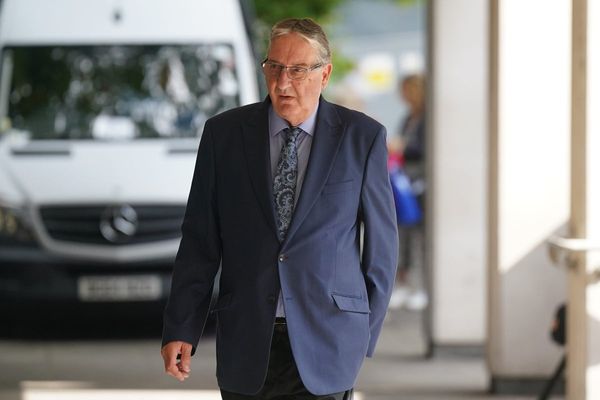
Disturbing reports have emerged from the southern Gaza city of Rafah, as residents brace themselves for an anticipated Israeli ground offensive. The gravity of the situation is evident as images of a devastated grandfather cradling the lifeless body of his seven-year-old granddaughter, Ataf, surface. Tragically, Ataf's family had sought refuge in a school in Khan Yunus, only to be struck by an airstrike. Despite their efforts, it took hours to transport Ataf to the nearest hospital, but it was ultimately too late.
Unfortunately, this heart-wrenching scene is not an isolated incident. As the conflict rages on, over a thousand children have lost their lives in Gaza, with countless others orphaned or suffering life-altering injuries, according to reports from the Hamas-run health ministry. In the central city of Deir el-Balah, airstrikes are a daily occurrence, leaving survivors to dig through the debris by hand in search of their loved ones.
Rafah, once thought to be a safe zone, now finds itself in the crosshairs. UNICEF estimates that over 600,000 children are among the one million people in the area, many seeking shelter in sprawling tent cities. The city has endured relentless Israeli airstrikes in recent weeks, purportedly aimed at Hamas. However, concerns loom large that Rafah could soon become a zone of untold bloodshed, as described by one aid group.
The Israeli military's warning of an impending ground operation has ignited fears for the civilian population in Rafah. Israeli authorities have called for a mass evacuation, but with limited alternatives, it remains a daunting task to secure the safety of these vulnerable individuals. Complicating matters further, Rafah plays a critical role as a vital lifeline for displaced Palestinians and a gateway for humanitarian aid from Egypt.



These developments have attracted international attention and condemnation. The United States State Department has expressed serious reservations about supporting an Israeli military operation in Rafah without adequate planning for the protection of civilians. U.S. President Joe Biden has gone as far as describing Israel's actions in Gaza as excessive.
Diplomatic efforts to resolve the conflict continue, but the situation appears bleak. Israel's Prime Minister, Benjamin Netanyahu, has rejected a proposed prolonged truce by Hamas, dismissing it as delusional. Netanyahu remains steadfast in his commitment to achieve a complete victory over Hamas, leaving little room for diplomatic breakthroughs or optimism for Gaza's future.
As the people of Gaza face the harrowing realities of continued violence and uncertainty, the humanitarian crisis deepens. The international community remains concerned about the escalating situation and the impact it will have on the lives of innocent civilians caught in the crossfire. The focus now shifts to finding a way to halt the bloodshed, alleviate the suffering, and create a path to peaceful resolution in the war-torn region.







